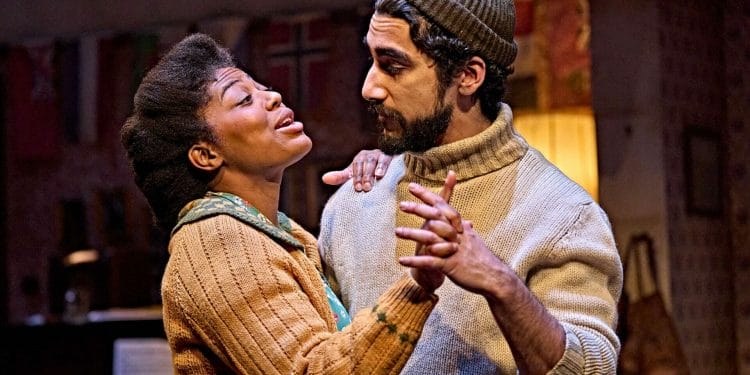 As one of the UK’s oldest and most diverse multicultural communities, with residents hailing from over 50 countries settling after the first World War, the small port town of Butetown, just south of the Welsh capital, is an aspirational setting for Fagon Award-winning playwright Diana Nneka Atuona’s new play, Trouble in Butetown about a family already torn apart by war trying to prevent further injury.
As one of the UK’s oldest and most diverse multicultural communities, with residents hailing from over 50 countries settling after the first World War, the small port town of Butetown, just south of the Welsh capital, is an aspirational setting for Fagon Award-winning playwright Diana Nneka Atuona’s new play, Trouble in Butetown about a family already torn apart by war trying to prevent further injury.
As the headstrong Connie (Rita Bernard-Shaw) comes home from a countywide dance with her best friend Peggy (Bethan Mary-James), we are immediately confronted by the dichotomies of living in Butetown.
Though the lively and joyous spirit of Butetown bursts through the door with them, equally matched by Connie’s quippy Uncle Norman (Zephryn Tattie) and his earnest shipyard mate Dullah (Zaqi Ismail), Connie’s mother Gwyneth Mbanefo (Sarah Parish) is the first to remind them of life’s dangers. After her husband fails to return from war, Gwyneth must take on the role of guardian for her children and community. In an effort to keep her multi-ethnic friends and family together and keep her illegal boarding house running, Gwyneth spurns or wholly ignores changes in her daily life and keeps her growing daughters attached to her hip.
However, with the advent of the Second World War, South Wales faces a seismic shift in the heritage of its multicultural communities. As American GIs flood Welsh port towns to set up barracks, they bring with them the racist, segregationist policies of Jim Crow. After a violent incident with the police, Nate, a Black American GI, shows up on the Mbanefo doorstep, desperate and hoping for assistance. Nate is a classic example of the catalytic stranger: he is out of sorts, in danger, and without a plan. In order to help Nate, the Mbanefo household must reshape their sheltered lives and confront the maladaptive or dysfunctional routines which constrain them.
Trouble in Butetown masterfully renders the physical and emotional barriers to change which we are all vulnerable to. Nneka Atuona generously weaves together a cast of sympathetic and distinct characters, each with their own dreams, anxieties, and sabotages, into a tender tapestry of hope. The play’s company understand their characters down to the marrow, giving authentic and honest performances all around. Parish’s Gwyneth is sorrowful and protective. Bernard-Shaw’s Connie is defensive and aspiring. Adewunmi’s Nate is wearied and wise, while Ekenna’s Georgina is marvellously jaunty and impudent.
Generally, the blessing of Trouble in Butetown is its untraceable success. From its generous script, to its masterful performances, to its detailed dramaturgy and stylish directing, Trouble in Butetown is guaranteed to do more than just entertain. Though we really should cast expectations aside before a playwright’s sophomore production, Nneka Atuona’s work continues to be dependably clever, enlightening, and kind.
Trouble in Butetown plays now through to March 25th at the Donmar Warehouse in London.
















